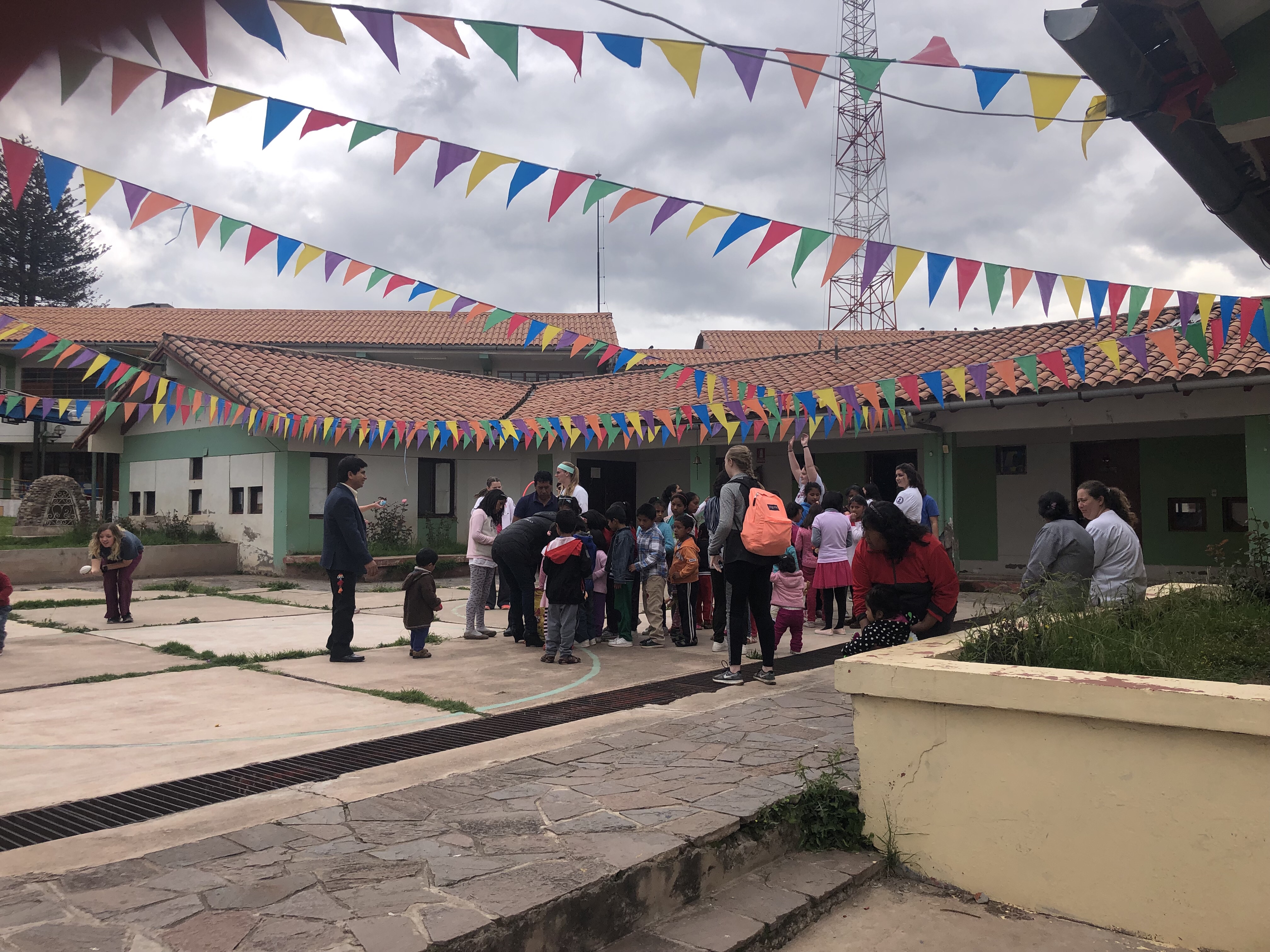As we stay longer in Peru, our students here only wish to do more and more with the time they have. The nursing students have been traveling to a different area each day, to offer medical care to the locals. The medical campaign offers height&weight, vitals, dental care, assessments, visits with the doctor, and the opportunity to receive medications and vitamins through a pharmacy. These areas were set up in the communities with tables and plastic chairs only supplied by donations. The community has been so appreciative and supportive of our students, faculty and the campaign. The group has been using their knowledge and skills from school, but this trip is giving them a unique experience and new perspectives for their aspiring careers. Not only are they learning new ways to approach giving care as a nurse, they are also learning so much about themselves as a person. All the students enjoyed talking with the patients that they were caring for. Throughout the week we interacted with different communities, and took on different roles each day. Although we did not speak Spanish that well, we broke the language barrier and were able to give care, and educate the locals of each community. Everyone was patient and helpful throughout the days at the clinic. Monday was our first day of the campaign, which was a time to become accustomed to the different healthcare settings. On Tuesday we were at a village in the country side where the prominent language spoken was Quechua, a native language, which made it more challenging to communicate with the patients,however, we did not allow it to affect the care being given. On Wednesday we had our clinic outside in a local market, which seemed strange at first but once we set up shop and threw on some sunscreen, we were ready to start the day. At the clinic today, the female patients had access to an Obstetrician, who gave them much needed womens health education and we totaled to 101 patients for the day, which was our highest population yet. Throughout the week, the nursing students have gained knowledge about themselves, patient care, and a very different culture and we are excited to conquer our last day of the campaign tomorrow!
-Nicole Kozikowski
Our social work students have also gotten so much out of this experience thus far. They have taken on caring for more and more children every day in the Aldea Infantil de Juan Pablo II (a place similar to foster housing in the U.S. that has been around for 30 years). The central mission of this institution is to care for children who have been abandoned, neglected, or orphaned. From Monday through today they have just wanted to give these children the much needed care and attention they need to be happy and have a good environment to be in. Not only have they seen what it is like for these children to live in these homes, but they had also met with the administration to ask more about this program. Little did they know there was no social worker at the institution at all, and they were actually contributing much more than they thought. Though they have two of these centers in Cusco, Peru that provide housing for children, there are not many people willing to take on the job of being a social worker. In fact currently at Juan Pablo II, the woman that used to do accounting picked up the job of the social worker, so the children could at least have someone. Aside from regular visits from a psychologist, many of the children still are not able to have extended access to social workers that could serve as mental health professionals, caretakers, experts on behavior, etc. Despite having this struggle though, both of our students have agreed that the system really is amazing because these children are kept together first and foremost, and the families are the strongest we have ever seen. The Aldea Infantil put aside property that has multiple homes right next to one another. They are placed in those housing units close to each other, so they have access to multiple family units (not just their own). Cusco can be considered a much more difficult environment to live in as a child, but this program at least gives them multiple outlets of family support and enrichment by constantly interacting with their peers. Not only this, but they also ensure these children learn basic skills so they can support themselves, much like programs in the United States. Basic skills give them the knowledge that they need to be responsible and find jobs one day, when they turn 18. Though they want to have them ready for that age, they do not hesitate to help past 18 years of age, and they still house a 19 year old because he needed more help. The past couple days have just taught our social work students that it is so important to really get to know the environment that you are working in, and how different situations require different and all of our attention. They have not skipped a beat when working with the children, and hope to volunteer more in places like this one that might not have social workers despite needing one.
Though we would all agree we have helped in whatever way we could, these places have taught us more than we could ever imagine. We have to them, but they gave back to us in so many ways. Tomorrow is the last day of our volunteer work, but we will definitely take this with us wherever we go!
-Lily Antonowicz







